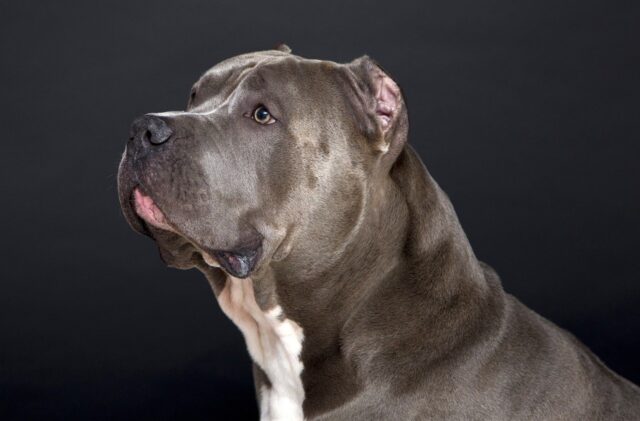Allergies in dogs can be a persistent and uncomfortable issue, affecting their quality of life and requiring constant management from their owners. Certain dog breeds are more prone to allergies due to their genetic makeup, skin types, and immune system responses. Allergies in dogs can manifest in various ways, including skin irritations, digestive problems, and respiratory issues. Understanding which breeds are more susceptible to allergies can help owners take preventative measures and provide the best care for their pets. This article explores twelve dog breeds most prone to allergies in 2024, detailing why each breed fits this topic and what owners can do to manage their allergies effectively.
12. Boxer
Boxers are energetic and playful dogs, but they are also highly prone to allergies. Their short coats and sensitive skin make them susceptible to environmental allergens like pollen, dust mites, and mold. Boxers can develop skin irritations, itching, and hot spots due to these allergies. Additionally, food allergies are common in Boxers, leading to digestive issues and skin problems. Owners should work closely with their veterinarians to identify and manage these allergies, including dietary changes, regular grooming, and medications to control itching and inflammation. Regular baths with hypoallergenic shampoos can also help alleviate symptoms.

11. Labrador Retriever
Labrador Retrievers are among the most popular dog breeds, known for their friendly and outgoing personalities. However, they are also prone to allergies, particularly skin allergies. Labradors can develop atopic dermatitis, a chronic skin condition caused by environmental allergens such as pollen, dust, and mold. Symptoms include itching, redness, and recurrent ear infections. Food allergies are also common in Labradors, requiring careful diet management. Owners should consult with their veterinarians to identify the specific allergens affecting their dogs and develop a treatment plan that may include dietary changes, medications, and regular grooming.

10. West Highland White Terrier
West Highland White Terriers, commonly known as Westies, are small dogs with distinctive white coats. They are particularly prone to skin allergies, which can cause severe itching, redness, and hair loss. Environmental allergens like pollen, dust mites, and mold can trigger these reactions. Westies are also susceptible to food allergies, leading to digestive issues and skin problems. Regular veterinary check-ups and allergy testing can help identify the specific allergens affecting Westies. Treatment often involves a combination of dietary changes, medications to control itching and inflammation, and regular grooming with hypoallergenic products.

9. Bichon Frise
Bichon Frises are small, fluffy dogs known for their cheerful and affectionate personalities. However, their curly coats and sensitive skin make them prone to allergies. Bichons often suffer from atopic dermatitis caused by environmental allergens such as pollen, dust mites, and mold. Symptoms include itching, redness, and recurrent ear infections. Food allergies can also affect Bichons, leading to digestive issues and skin problems. Regular grooming, including frequent baths with hypoallergenic shampoos, can help manage skin allergies. A carefully monitored diet and medications a veterinarian prescribes can also help alleviate symptoms and improve their quality of life.

8. Golden Retriever
Golden Retrievers are beloved for their friendly and loyal nature, but they are also prone to allergies, particularly skin allergies. Goldens can develop atopic dermatitis due to environmental allergens like pollen, dust, and mold. Symptoms include itching, redness, and recurrent ear infections. Food allergies are also common in Golden Retrievers, leading to digestive issues and skin problems. Owners should work closely with their veterinarians to identify the specific allergens affecting their dogs and develop a treatment plan that may include dietary changes, medications, and regular grooming. Regular baths with hypoallergenic shampoos can also help alleviate symptoms.

7. American Pit Bull Terrier
American Pit Bull Terriers are known for their strength and loyalty, but they are also prone to allergies, particularly skin allergies. Pits can develop atopic dermatitis due to environmental allergens like pollen, dust, and mold. Symptoms include itching, redness, and recurrent ear infections. Food allergies are also common in Pit Bulls, leading to digestive issues and skin problems. Regular veterinary check-ups and allergy testing can help identify the specific allergens affecting Pits. Treatment often involves a combination of dietary changes, medications to control itching and inflammation, and regular grooming with hypoallergenic products.

6. English Bulldog
English Bulldogs are known for their distinctive appearance and gentle nature, but they are also highly prone to allergies. Their wrinkled skin can trap moisture and bacteria, leading to skin irritations and infections. Environmental allergens like pollen, dust mites, and mold can exacerbate these issues. Bulldogs are also susceptible to food allergies, causing digestive problems and skin reactions. Regular veterinary check-ups and allergy testing can help identify the specific allergens affecting Bulldogs. Treatment often involves a combination of dietary changes, medications to control itching and inflammation, and regular grooming with hypoallergenic products. Keeping their skin folds clean and dry is essential for managing their allergies.

5. Cocker Spaniel
Cocker Spaniels are known for their beautiful coats and affectionate nature, but they are also prone to allergies, particularly skin allergies. Cockers can develop atopic dermatitis due to environmental allergens like pollen, dust, and mold. Symptoms include itching, redness, and recurrent ear infections. Food allergies are also common in Cocker Spaniels, leading to digestive issues and skin problems. Regular grooming, including frequent baths with hypoallergenic shampoos, can help manage skin allergies. A carefully monitored diet and medications a veterinarian prescribes can also help alleviate symptoms and improve their quality of life.

4. Shih Tzu
Shih Tzus are small, friendly dogs with a long, flowing coat that requires regular grooming. Their sensitive skin makes them prone to allergies, particularly skin allergies. Shih Tzus can develop atopic dermatitis due to environmental allergens like pollen, dust, and mold. Symptoms include itching, redness, and recurrent ear infections. Food allergies are also common in Shih Tzus, leading to digestive issues and skin problems. Regular grooming, including frequent baths with hypoallergenic shampoos, can help manage skin allergies. A carefully monitored diet and medications a veterinarian prescribes can help alleviate symptoms and improve their quality of life.

3. Dalmatian
Dalmatians are known for their distinctive spotted coats and energetic personalities, but they are also prone to allergies. Their short coats and sensitive skin make them susceptible to environmental allergens like pollen, dust mites, and mold. Dalmatians can develop atopic dermatitis, causing itching, redness, and recurrent ear infections. Food allergies are also common in Dalmatians, leading to digestive issues and skin problems. Regular veterinary check-ups and allergy testing can help identify the specific allergens affecting Dalmatians. Treatment often involves a combination of dietary changes, medications to control itching and inflammation, and regular grooming with hypoallergenic products.

2. Schnauzer
Schnauzers, particularly Miniature Schnauzers, are prone to allergies, especially skin allergies. Their wiry coats and sensitive skin make them susceptible to environmental allergens like pollen, dust, and mold. Schnauzers can develop atopic dermatitis, causing itching, redness, and recurrent ear infections. Food allergies are also common in Schnauzers, leading to digestive issues and skin problems. Regular grooming, including frequent baths with hypoallergenic shampoos, can help manage skin allergies. A carefully monitored diet and medications a veterinarian prescribes can help alleviate symptoms and improve their quality of life.

1. Poodle (All Sizes)
Poodles, whether Standard, Miniature, or Toy, are known for their intelligence and hypoallergenic coats. However, they are also prone to allergies, particularly skin allergies. Poodles can develop atopic dermatitis due to environmental allergens like pollen, dust, and mold. Symptoms include itching, redness, and recurrent ear infections. Food allergies are also common in Poodles, leading to digestive issues and skin problems. Regular grooming, including frequent baths with hypoallergenic shampoos, can help manage skin allergies. A carefully monitored diet and medications a veterinarian prescribes can help alleviate symptoms and improve their quality of life.

In conclusion, these twelve dog breeds are particularly prone to allergies, making awareness and proactive management essential for their health and well-being. Regular veterinary check-ups, a balanced diet, and consistent grooming practices can help mitigate the effects of allergies. Owners should be vigilant for signs of allergic reactions and work closely with their veterinarians to develop effective treatment plans. By understanding the specific needs and susceptibilities of these breeds, owners can ensure their pets lead happy, comfortable lives despite their allergy predispositions.
 Toledo, United States.
Toledo, United States.